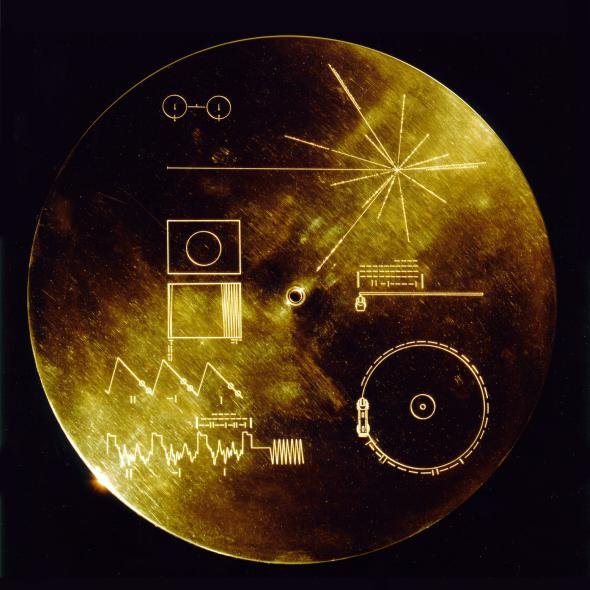
From Natural Geographic
Forty years ago, we sent a map to Earth sailing deep into the cosmos.Read more: http://news.nationalgeographic.com/2017/08/map-aliens-find-earth-voyager-40-pulsars-space-science/Copies of this map are etched into each of the twin Voyager spacecraft, which launched in the late 1970s and are now the farthest spacecraft from home. One of the probes has already slipped into interstellar space, and the other is skirting the fringes of our sun’s immediate neighborhood.
If it’s ever intercepted and decoded by extraterrestrials, the map will not only reveal where to find our watery little world, but also when the space probe that delivered it to alien hands left home.
“We needed to put something on the Voyager that said where it came from, and how long it was traveling,” says my dad, Frank Drake, who designed the map.
The Voyager version of route-finding pins the sun onto our galaxy using 14 pulsars, which are the rapidly spinning corpses of exploded stars. It’s a cipher unlike anything made before, the kind of object that drives entire fictional quests—and that is currently spurring arguments over the intelligence of broadcasting our existence to civilizations with possibly nefarious proclivities.
“Back when Drake did the pulsar map, and Carl Sagan and the whole team did the Voyager record, there hadn't been very much debate over the pros and cons of contact with extraterrestrial intelligence,” says York University’s Kathryn Denning, an anthropologist who studies the ethics of sending messages to extraterrestrials.
“Now, however, as you know, there is a major debate among scientists and a variety of stakeholders about the wisdom of doing anything other than listening.”
Follow @contentjunkie to stay up to date on more great posts like this one.

The hypothetical debates as to wether or not contacting extraterrestrials is a good idea is very intriguing.
We probably shouldn't, lol. Assuming they're not here already.
No point in fretting over it now though, we've been broadcasting for a century and have sent ridiculous quantities of materials flying across our local area. Anybody paying attention knows we are here.
Downvoting a post can decrease pending rewards and make it less visible. Common reasons:
Submit
If this is real it will be amazing
Downvoting a post can decrease pending rewards and make it less visible. Common reasons:
Submit
the nasa feeds with the ufo's and such and sudden feed cuts are enough to convince me 'they' are quite aware of our existence , nice
Downvoting a post can decrease pending rewards and make it less visible. Common reasons:
Submit
This post has been ranked within the top 80 most undervalued posts in the first half of Aug 17. We estimate that this post is undervalued by $12.70 as compared to a scenario in which every voter had an equal say.
See the full rankings and details in The Daily Tribune: Aug 17 - Part I. You can also read about some of our methodology, data analysis and technical details in our initial post.
If you are the author and would prefer not to receive these comments, simply reply "Stop" to this comment.
Downvoting a post can decrease pending rewards and make it less visible. Common reasons:
Submit
This post received a 3.2% upvote from @randowhale thanks to @contentjunkie! For more information, click here!
Downvoting a post can decrease pending rewards and make it less visible. Common reasons:
Submit